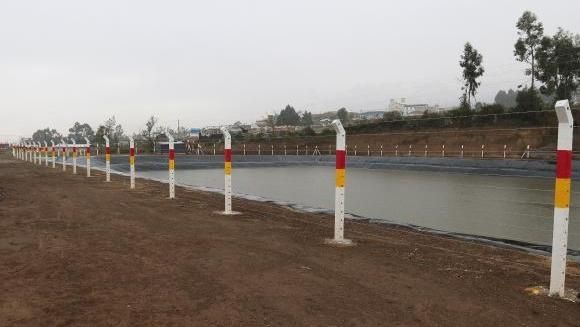A group of Ecuadorean agricultural workers and the Ministry of the Environment are working together to address the effects of climate change, implementing a program known as the Foreccsa project, aimed at ensuring food security.
The Foreccsa project — whose name is a Spanish acronym for “strengthening the resilience of communities to the impacts of climate change with an emphasis on food sovereignty” — is being rolled out in 50 communities in the provinces of Loja, Azuay, El Oro, and Pichincha, where the highest concentration of agricultural production in Ecuador occurs.
Javier Rojas, manager of the Foreccsa program told the Andes news agency that the program “seeks to safeguard the production of food, which has direct impact on nutrition” and that their goal is for communities to be able to “recover from the impacts of climate change."
One such community is La Esperanza, in the province of Pichincha. Residents there have reported a persistent drought over the last few years.
“The change is terrible. For months it has not rained and two days ago we had a terrible hailstorm,” local resident Susana Coser told Andes in a report published Sunday.
Despite these challenges, the community perseveres.
"Agriculture is our livelihood. Weather there is frost, hail, strong winds or drought we sow. We are persistent because it is our livelihood and that of our family," said Coser's sister Fabiola.
Residents of La Esperanza, with the support of the state through the Foreccsa program, have now built water reservoirs to mitigate the effects of the drought.

A water reservoir, built thanks to community labor, will help lessen the effects of a persistent drought in the community of La Esperanza, Pichincha. | Photo: Andes
Tania Teran, the coordinator of the reservoir project in La Esperanza, said co-management, involving the community and Ministry of the Environment, has been a critical component of the effort since its inception.
In many Andean communities, the pre-Hispanic colonization tradition of a collective work effort, known as a minga, is preserved. Local resident Nestor Nepas said that without the mingas, and in particular the effort of the women from the community, the project would not have been realized.
Diego Guzman, director of the Adaptation to Climate Change group within the Ministry of the Environment, said the Foreccsa project is but one effort of many by the government to tackle the effects of climate change.
World leaders will soon gather in Paris for the COP21 climate summit, which is being billed as the most important climate summit to date.
ANALYSIS: COP21 – A Climate Summit Without Marches
Latin American and Caribbean countries have come together to present a shared position on climate change at the summit.
The statement from Ecuadorean Ministry of Foreign Affairs, released earlier this month, emphasized that talks in Paris should favor the populations most vulnerable to climate change, such as those in Latin America, and called for international action to promote “true sustainable development.”